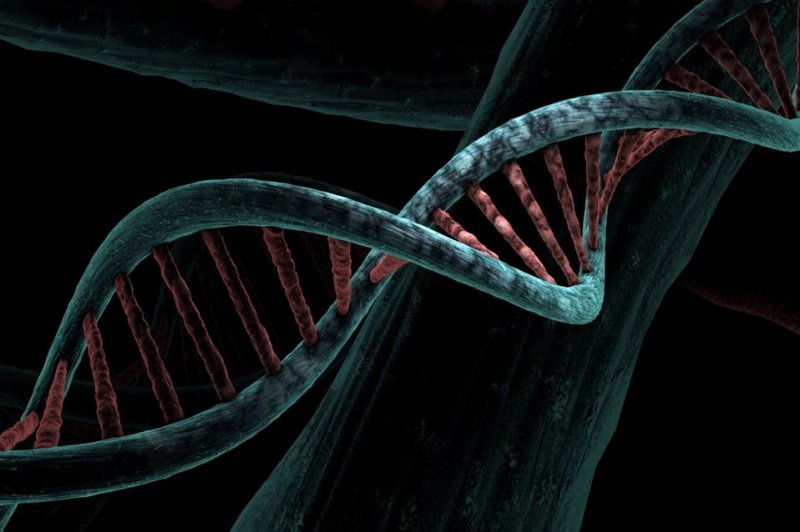[ad_1]
June 3 (UPI) — Just about every so normally stories of genetic theft, or extreme precautions taken to steer clear of it, make headline news. So it was with a photograph of French President Emmanuel Macron and Russian President Vladimir Putin sitting at reverse finishes of a pretty lengthy desk after Macron declined to just take a Russian PCR COVID-19 test. Several speculated that Macron refused owing to stability concerns that the Russians would just take and use his DNA for nefarious purposes. German Chancellor Olaf Scholz likewise refused to just take a Russian PCR COVID-19 exam.
Although these problems may possibly look somewhat new, pop star superstar Madonna has been boosting alarm bells about the opportunity for nonconsensual, surreptitious selection and testing of DNA for about a decade. She has employed cleansing crews to sterilize her dressing rooms right after concerts and calls for her possess new toilet seats at every halt of her tours.
At 1st, Madonna was ridiculed for having DNA paranoia. But as far more highly developed, speedier and less expensive genetic systems have reached the client realm, these problems seem to be not only sensible, but justified.

Russian President Vladimir Putin (L) and French President Emmanuel Macron (R) meet up with in the Kremlin in Moscow, Russia, on February 7. Kremlin Pool Photo by Sputnik/EPA-EFE
We are law professors who study how emerging technologies like genetic sequencing are regulated. We think that developing general public interest in genetics has enhanced the probability that genetic paparazzi with DNA collection kits may possibly shortly grow to be as ubiquitous as ones with cameras.
When courts have for the most part managed to evade dealing with the complexities of surreptitious DNA selection and tests of community figures, they would not be in a position to stay away from dealing with it for much for a longer time. And when they do, they are likely to run squarely into the constraints of current legal frameworks when it will come to genetics.
Genetic facts troves
You go away your DNA at the rear of you everywhere you go. The strands of hair, fingernails, dead pores and skin and saliva you shed as you shift through your day are all collectible trails of DNA.
Genetic analysis can reveal not only particular information and facts, these as present wellbeing situations or possibility for acquiring sure disorders, but also core factors of a person’s identity, such as their ancestry and the likely qualities of their potential little ones. In addition, as genetic technologies continue on to evolve, fears about utilizing surreptitiously collected genetic material for reproductive functions by means of in vitro gametogenesis turn out to be extra than just paranoia.
In the long run, having an individual’s genetic content and information without having their consent is an intrusion into a authorized domain that is even now thought of deeply personal. Regardless of this, there are couple of rules guarding the passions of men and women about their genetic product and info.
Current lawful frameworks
When disputes involving genetic theft from general public figures inevitably get to the courtroom, judges will require to confront basic concerns about how genetics relates to personhood and identification, property, wellbeing and sickness, intellectual residence and reproductive legal rights. This sort of questions have now been raised in situations involving the use of genetics in law enforcement, the patentability of DNA and possession of discarded genetic materials.
In every of these situations, courts targeted on only 1 dimension of genetics, these types of as privateness rights or the price of genetic facts for biomedical investigation. But this restricted solution disregards other factors, these kinds of as the privateness of family users with shared genetics, or property and identification passions somebody might have in genetic material discarded as component of a professional medical treatment.
In the scenario of genetic paparazzi, courts will presumably check out to match complicated concerns about genetics into the authorized framework of privateness rights simply because this is how they have approached other intrusions into the life of public figures in the earlier.
Contemporary U.S. privacy regulation is a sophisticated web of condition and federal laws governing how information and facts can be acquired, accessed, stored and utilized. The appropriate to privacy is restricted by 1st Modification protections on the independence of speech and push, as nicely as Fourth Amendment prohibitions on unreasonable searches and seizure. Community figures encounter more restrictions on their privacy rights mainly because they are objects of respectable general public fascination. On the other hand, they also have publicity rights that control the professional worth of their distinctive personally identifying attributes.
People whose genetic content has been taken with out their consent could also raise a assert of conversion that their home has been interfered with and misplaced. Courts in Florida are at the moment considering a conversion assert in a personal dispute in which the previous CEO of Marvel Enjoyment and his spouse accused a millionaire businessman of thieving their DNA to demonstrate that they have been slandering him through a loathe-mail marketing campaign. This solution replaces the slender legal framework of privateness with an even narrower framework of property, cutting down genetics to an item that an individual possesses.
What the future may perhaps keep
Less than present laws and the present-day state of genetic know-how, most people today never will need to be concerned about surreptitious selection and use of genetic product in the way that general public figures may. But genetic paparazzi conditions will likely engage in an crucial position in figuring out what legal rights every person else will or will not have.
The U.S. Supreme Courtroom is very not likely to acknowledge new rights, or even affirm formerly recognized legal rights, that are not explicitly described in the Structure. For that reason, at least at the federal stage, unique protections for genetic content and information and facts are not probable to adapt to shifting moments.
This usually means that situations involving genetics are likely to drop inside of the purview of point out legislatures and courts. But none of the states have adequately grappled with the complexities of genetic authorized promises. Even in states with legal guidelines especially intended to guard genetic privacy, rules protect only a slender variety of genetic interests. Some legislation, for example, may perhaps prohibit disclosure of genetic data, but not selection.
For far better or for worse, how the courts rule in genetic paparazzi cases will shape how culture thinks about genetic privacy and about person legal rights concerning genetics much more broadly.![]()
Liza Vertinsky is a professor of regulation at the College of Maryland and Yaniv Heled is an affiliate professor of regulation at Georgia Point out College. This post is republished from The Dialogue underneath a Creative Commons license. Study the primary posting.
The views and thoughts expressed in this commentary are entirely these of the authors.
[ad_2]
Resource link









